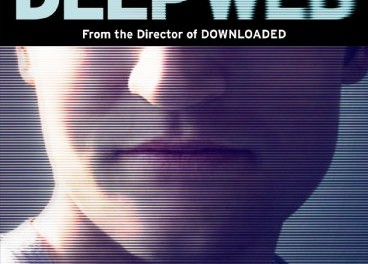Film Review: Deep Web, Heading Deep Into the Silk Road Trial
Where does one get easy, untraceable, online access to child pornography, human trafficking and murder for hire? Through the deep web, of course. Imagine a whole virtual world beyond the visible net (also known as the surface net), teeming with methods of protecting its users’ anonymity. Accessible through a software called Tor, the deep web has with time expanded into a vast network used by all sorts of individuals looking for privacy – from journalists and criminals to dissidents and whistle blowers. And although the deep web offers many ominous services – it keeps criminal identities virtually protected – it is most extensively used for its vast drug market called the Silk Road.
The Silk Road is a virtual black market that, since its creation in February 2011, has grossed over $1.2 billion, with over 960 000 users across the world. Selling any substances from cannabis to heroin, the network guarantees quick, free shipping and users’ anonymity through the exchange of an online currency called Bitcoin. And with a customer reviewing system in place, a certain quality control of the products is automatically enforced. However, in 2013, the Silk Road was shut down by the FBI – indeed, a key pawn in the administration of the Silk Road, Ross William Ulbricht (running under the pseudonym of Dread Pirate Roberts, aka DPR) got arrested. Nonetheless, on November 6th 2013, the black marketplace was opened anew.
Following Ulbritcht’s life sentence in prison on May 29th 2015, Alex Winter wrote and directed Deep Web (produced by Marc Schiller and Glen Zipper), a movie that documents Ulbricht’s trial in shrewd detail. Including insightful interviews with various law enforcers, journalists and Ross’s relatives, Deep Web really illustrates how incredibly ambiguous the whole Dread Pirate Roberts case actually was. The film incessantly brings up controversial subjects such as virtual privacy, online drug markets and a possibly unfair trial.
Interestingly enough, Winter even managed to feature Andy Greenberg in the film, a journalist who got in touch with DPR before the FBI did. In the documentary, Greenberg describes the Ulbricht he virtually got to know as an anarcho-capitalist with highly political motives for the Silk Road. Indeed, the journalist was surprised by how morally conscious DPR seemed in the interviews – so why is DPR being accused of six attempted murders-for-hire (of informants)?
Other interesting issues brought up by the movie are the drug wars. It is theoretically possible that the usage of an online black market can decrease the amount of violence involved in the drug trade, with very few people interacting face-to-face. In fact, some studies have shown that the Silk Road actually has succeeded in triggering a certain decrease in drug trade violence, with more drug users interacting online than ever before. Is it therefore possible for a virtual drug network to actually have a positive impact on society?
Winter’s Deep Web offers viewers a lot of insight on this fascinating (and rather futuristic) crime drama, while highlighting how multi-faceted this specific issue truly is. And there are still many ongoing campaigns (primarily pioneered by the parents) to free Ross Ulbricht from his sentence. Although the trial may be over, the case is not quite closed yet. Especially with a new Dread Pirate Roberts administering the Silk Road at this very moment…
“You can take down the man, but you can’t take down the idea.” – Fran Berkman
The Deep Web will be playing from September 18th to September 22nd, 7 pm, Cinéma du Parc.








